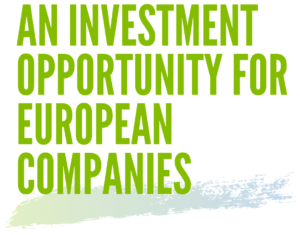
27 May The Covid-19 Recovery Plans Cannot Ignore The Green Transition
Author: Brittney Elzarei
The outbreak of the COVID-19 pandemic has changed our way of working and will affect the political agenda in the upcoming months. To face the economic crises that the pandemic has triggered in Europe, public stimulus packages will be developed to relaunch the economy, and crucial decisions will need to be taken on where these substantial financial flows should be directed.
The European Commission will be involved in the drafting of a coordinated exit strategy, a comprehensive recovery plan with unprecedented investment to kick start the economy once the pandemic is under control.
The risk is that, in sight of a quick economic recovery, the objectives outlined in the European Green Deal – the hallmark of the von der Leyen Commission – will be set aside. Some organisations are using the current emergency to weaken the climate regulations foreseen in the European Green Deal. For instance, as reported by the Dutch economy minister Eric Wiebes, the Dutch government will postpone the introduction of a court-mandated plan to reduce greenhouse gas emissions by the end of 2020 because of the coronavirus outbreak. Hence, a strong voice from businesses, organisations and companies is necessary to ensure this does not happen.

Europe needs an economic stabilisation package, and its measures should be coherent with the EU’s 2050 emission goals. Fossil-fuel intensive sectors, such as the oil and gas and aviation industries, are now lining up for economic relief. Ideally, now should be the time to hold these sectors accountable, by providing some conditionality on how they will operate in the future.
As governments draw up stimulus plans to counter the economic damage of the pandemic, they should ensure that clean energy investment does not get lost amid the flurry of immediate priorities. Governments can use the current situation to step up their climate ambitions and launch sustainable stimulus packages focused on clean energy technologies. Solar, wind, hydrogen, energy storage and carbon capture (CCUS) should be a central part of governments’ plans because they will bring the twin benefits of stimulating economies and accelerating clean energy transitions.

The transition to a net-zero economy is an investment opportunity for European companies: with the right policy framework, European industries can gain improved productivity and competitiveness while establishing themselves in a strong position internationally as innovative leaders in their sectors. A well-managed transition to a circular, clean and climate-neutral economy can reinvigorate Europe’s industry, creating new job opportunities and benefitting local communities.
For that to happen, European business needs support and certainty from policymakers to put in place measures that will allow it to remain competitive: from targeted support from EU funds to a significant redirection of finance towards the facilitation of investments, delivering innovative, decarbonised industry is essential.

We strongly believe that Europe can overcome the challenge of remaining competitive while becoming sustainable. For this reason, we are working even harder to raise awareness of the need for additional financial efforts dedicated to the decarbonisation of industries and SMEs and to guarantee that the promises of the European Green Deal and Just Transitions are upheld.
Thanks to our large network at the EU institutions, we guarantee our clients’ direct contact with the European institutions, even at a time when physical contact and normal lobbying strategies are off the table. Our expertise, advocacy effort and monitoring work are critical, not only in this time of uncertainty but also once the emergency is over, to make sure that the business of the companies we represent is taken into consideration in the development of the European Green Deal.
In this time of transition, we stand with you in the front line to ensure that your interests are safeguarded and that your voice is heard.




